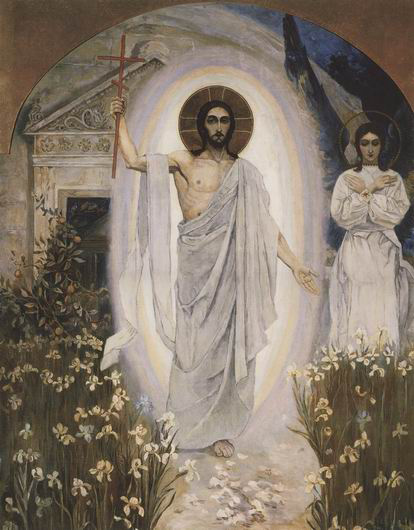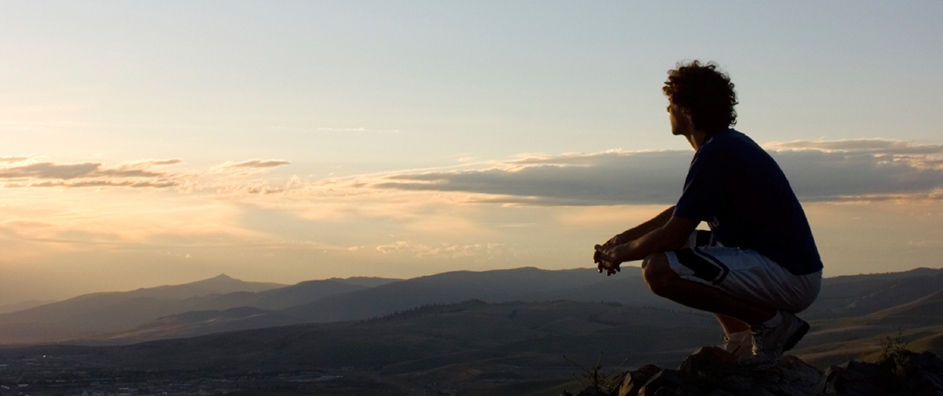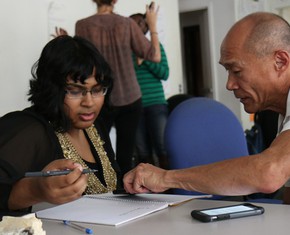The views expressed in our content reflect individual perspectives and do not represent the authoritative views of the Baha'i Faith.
Thus with steadfast steps we may tread the Path of certitude, that perchance the breeze that bloweth from the meads of the good-pleasure of God may waft upon us the sweet savours of divine acceptance, and cause us, vanishing mortals that we are, to attain unto the Kingdom of everlasting glory. – Baha’u’llah, The Book of Certitude, p. 134.
The concept of the Kingdom of God can form an important bridge of understanding between the teachings of Jesus and the teachings of Baha’u’llah. These three passages from the Gospels give the reader a taste of Jesus’ meaning when he uses the term:
The time is fulfilled, and the kingdom of God is close at hand. Repent and believe the good news. – Mark 1:15
The kingdom of Heaven is like a mustard seed which a man took and sowed in his field. It is the smallest of all the seeds, but when it has grown it is the biggest of shrubs and becomes a tree, so that the birds of the air can come and shelter in its branches. – Matthew 13:31-2
I tell you truly, there are some standing here who will not taste death before they see the kingdom of God. – Luke 9:27
So what, and where, is the Kingdom of God? The writings of Baha’u’llah shed light on this question.
 Traditionally in Christianity, the kingdom of God has two interpretations. One views it as a social and political order that will at one point overpower the governments and ruling factions of the world. For some, this may mean a socialist utopia, a Christian theocracy, or a post-apocalyptic scenario in which Jesus assumes direct rule over the Earth. Another way to think of the Kingdom of God is as a spiritual presence within each of our souls, and beyond this a universe that joins us to our Creator. In this view, how society functions might be a distraction from the most important task, the transformation of souls.
Traditionally in Christianity, the kingdom of God has two interpretations. One views it as a social and political order that will at one point overpower the governments and ruling factions of the world. For some, this may mean a socialist utopia, a Christian theocracy, or a post-apocalyptic scenario in which Jesus assumes direct rule over the Earth. Another way to think of the Kingdom of God is as a spiritual presence within each of our souls, and beyond this a universe that joins us to our Creator. In this view, how society functions might be a distraction from the most important task, the transformation of souls.
The Book of Certitude, one of the most prominent sacred texts of the Baha’i Faith, provides a perspective on this topic that embraces elements of both of these perspectives. In The Book of Certitude Baha’u’llah does not present social and spiritual, inner and outer, individual and collective in opposition to each other, but as different dimensions of a single vision of God’s plan for humanity.
The question of Divine sovereignty runs the full length of The Book of Certitude. Though the exact phrases “Kingdom of God” and its variant “Kingdom of Heaven” don’t appear often in the text, Baha’u’llah’s exploration of how God rules and expresses his dominion over the world sheds abundant light on Jesus’ promise of the Kingdom of God. Although first voiced centuries ago, that promise retains vital importance for us today.
In The Book of Certitude, Baha’u’llah makes the case that the sovereignty of God exercised in His kingdom doesn’t resemble the temporal, earthly sovereignty possessed by political rulers. Baha’u’llah points out that the Prophets of God have all suffered the persecution of their enemies, the apathy of the general population and the betrayal of some of their closest associates:
And now, ponder this in thine heart: Were sovereignty to mean earthly sovereignty and worldly dominion, were it to imply the subjection and external allegiance of all the peoples and kindreds of the earth—whereby His loved ones should be exalted and be made to live in peace, and His enemies be abased and tormented—such form of sovereignty would not be true of God Himself, the Source of all dominion, Whose majesty and power all things testify. – Baha’u’llah, The Book of Certitude, p. 215.
Instead, the Baha’i teachings say, the sovereignty of God refers to the creative power woven into the fabric of all things that God holds exclusively as Creator of the universe. Through this supreme agency, God raises up suitable vehicles for His guidance to humanity, the prophets of God: Jesus, Moses, Muhammad, the Buddha, Baha’u’llah, and others. As the transcendent, invisible Maker of the Universe, God is separate from human society. But as one who speaks through his prophets and messengers, He guides, directs and participates in public discourse on issues connected to the individual and collective life of humans.
Each of us has the capacity to voluntarily take God’s guidance to heart or cast it aside. Those who speak the divine word to humanity do not use God’s all-encompassing, sovereign might to force people into submission. Instead, those prophets are kings in the spirit, not kings of the society to whom they speak. God’s human listeners and readers must then put this guidance into practice through their own initiative, in order to embody it in personal lifestyles, and in a broader social order that could rightfully become a Kingdom of God:
And yet, is not the object of every Revelation to effect a transformation in the whole character of mankind, a transformation that shall manifest itself, both outwardly and inwardly, that shall affect both its inner life and external conditions? For if the character of mankind be not changed, the futility of God’s universal Manifestation would be apparent. – Baha’u’llah, The Book of Certitude, p. 222.
God leaves it to the people to build and champion His kingdom upon the Earth.
The Book of Certitude and other Baha’i Writings portray a vision of the Kingdom of God that concerns both the inner life of the soul and the social order that embraces all people.
















Comments
Sign in or create an account
Continue with Googleor